Like Moses upholding the Tablets of the Law, Rabbi Chaim Seidler-Feller stood on the steps of UCLA’s Ackerman Union last week, his outstretched arms grasping a large, hand-lettered cardboard sign, which proclaimed:
Peace for Israel
Peace for Palestine
Share the Hope
Milling near the solitary UCLA Hillel director were Arab and Jewish students with competing exhibits, but to reach them a visitor had to pass through a colorful marketplace of causes up Bruin Walk.
The largest crowd was listening to the deafening rock band, Moving Units, anchoring a gauntlet of tables, leafleteers and displays urging students to participate in the Inaugural Bruin Cardboard Boat Race, engage in Christian Bible studies, fight drug addiction, play volleyball and so on.
At the end was a large photo collage of men and women of different races and nationalities, each asserting “I am a Palestinian” to indicate international solidarity for the cause. The announced Apartheid Obstacle Course, presented by the Guerrilla Theatre, was running an hour late.
The Bruin Walk display was one of the events organized by Muslim, Arab and supporting students as part of the weeklong “Israel and Palestine: Obstacles to Peace” program.
The low-key theme appeared to be an attempt by the sponsoring Students for Justice in Palestine to lend a respectable scholarly touch to the anti-Israel demonstrations.
If this approach indicated a higher level of sophistication by the sponsors than in previous years, so did the Jewish response, organized by Bruins for Israel.
Bruin Walk was dotted with graphic pro-Israel posters aimed at different campus constituencies.
“Where in the Middle East Can Gay Officers Serve Their Country?” asked one poster, answering, “Only in Israel.” Other posters, with the same bottom line, queried, “Where in the Middle East Can Arab Women Vote?” and “Where in the Middle East Are Daughters Valued as Much as Sons?”
Smack in front of the Palestinian display stood 21-year-old Michael Smoyman, a yarmulke on his head and holding a sign inscribed, “Obstacle to Peace: Suicide Bombing.”
As Seidler-Feller’s arms grew tired of holding the peace poster, he was approached by George Malouf, an Arab graduate student from Gaza, who took over the rabbi’s sign and post.
When the “apartheid wall” finally arrived, it lead to a mind-bending face-off between Arab students dressed as Israeli soldiers manning roadblocks, and Jewish students dressed as suicide bombers and carrying such signs as, “If I were a Palestinian suicide bomber, you would be dead now” and “If I were your neighbor, you would want a fence, too.”
Two campus cops on bicycles were on hand to break up a threatening scuffle, but on the whole the week’s mood was largely nonconfrontational.
It was quite a different story a week earlier at UC Irvine, which for the past three years has witnessed militant anti-Israel agitation during Palestine Week.
Instead of UCLA’s benign “Obstacles to Peace” slogan, the theme of the UCI Muslim Student Union was “Holocaust in the Holy Land,” featuring lectures on such topics as “Israel: The Fourth Reich.”
Amir Abdel Malik Ali, a Black Muslim imam and veteran rabble-rouser given to bloodcurdling threats against Israel and “Zionist Jews” spoke at both UC campuses.
While he pulled out all the stops at an UCI outdoor rally, at UCLA he spoke to some 70 people in an indoor auditorium in a considerably calmer and less vituperative voice.
Allyson Rowen Taylor, associate director of the regional American Jewish Congress chapter, monitored the UCI events and, shocked by the hostile atmosphere, said “I now understand what it’s like to be a Jew in pre-war Germany or an American Embassy hostage in Tehran.”
Jeffrey Rips, the Hillel executive director at UCI, said that while there was general agreement that free speech should not be abrogated on campus, the administration had the right and duty of exercising its free speech by publicly condemning anti-Semitic demonstrations and hate harangues.
This point represents a long-standing demand by such groups as the Anti-Defamation League, StandWithUs, the American Jewish Committee, the Jewish Federation of Orange County and some UCI faculty members, who protested this year’s events to Chancellor Michael V. Drake.
The U.S. Office of Civil Rights of the Department of Education is currently investigating charges by the Zionist Organization of America that the UCI administration has failed to take a stand against anti-Semitism and to prevent harassment of Jewish students on campus.
To balance the dour campus picture, Rips said that except during Palestine Week, there was little tension between Muslim and Jewish student the rest of the year.
While some Jewish students, especially freshmen, were intimidated in the past by the militancy of Muslim students, who outnumber Jewish students, “now you see students wearing kippot and ‘I’m Proud to be Jewish’ T-shirts, and we also had a large sukkah on campus,” he said.
Rips blamed the tenser atmosphere at UCI, compared to UCLA, on a more radicalized Muslim student group, which takes its cues from Malik Ali, and the fact that UCI has become the main media focus for national Arab-Jewish campus tensions.
General and Jewish papers ran extensive stories on UCI’s Palestine Week; UCLA’s was covered only by the campus daily.







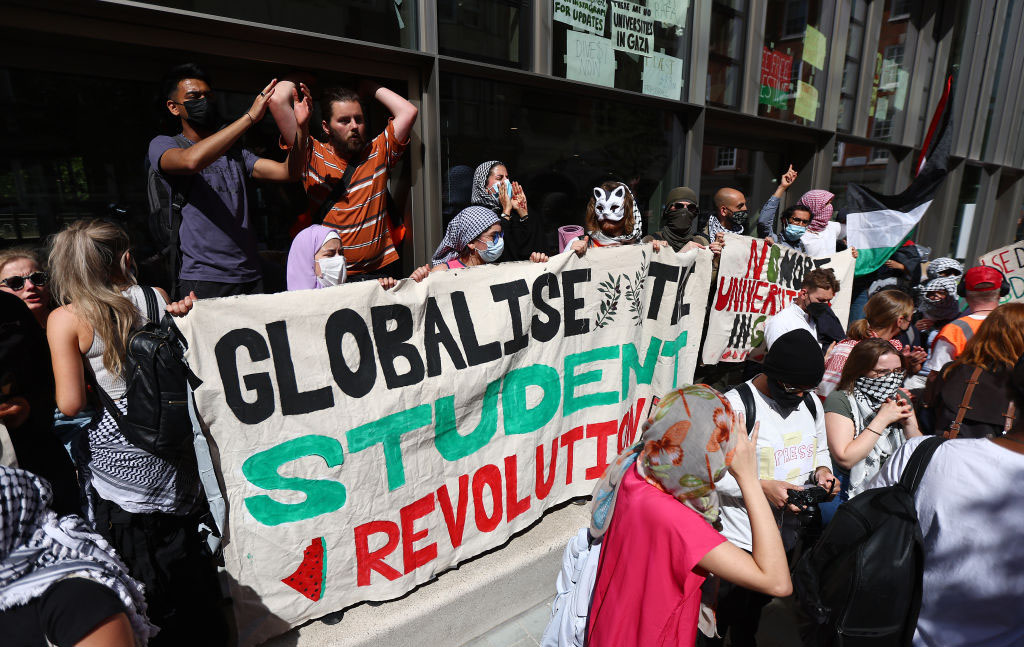


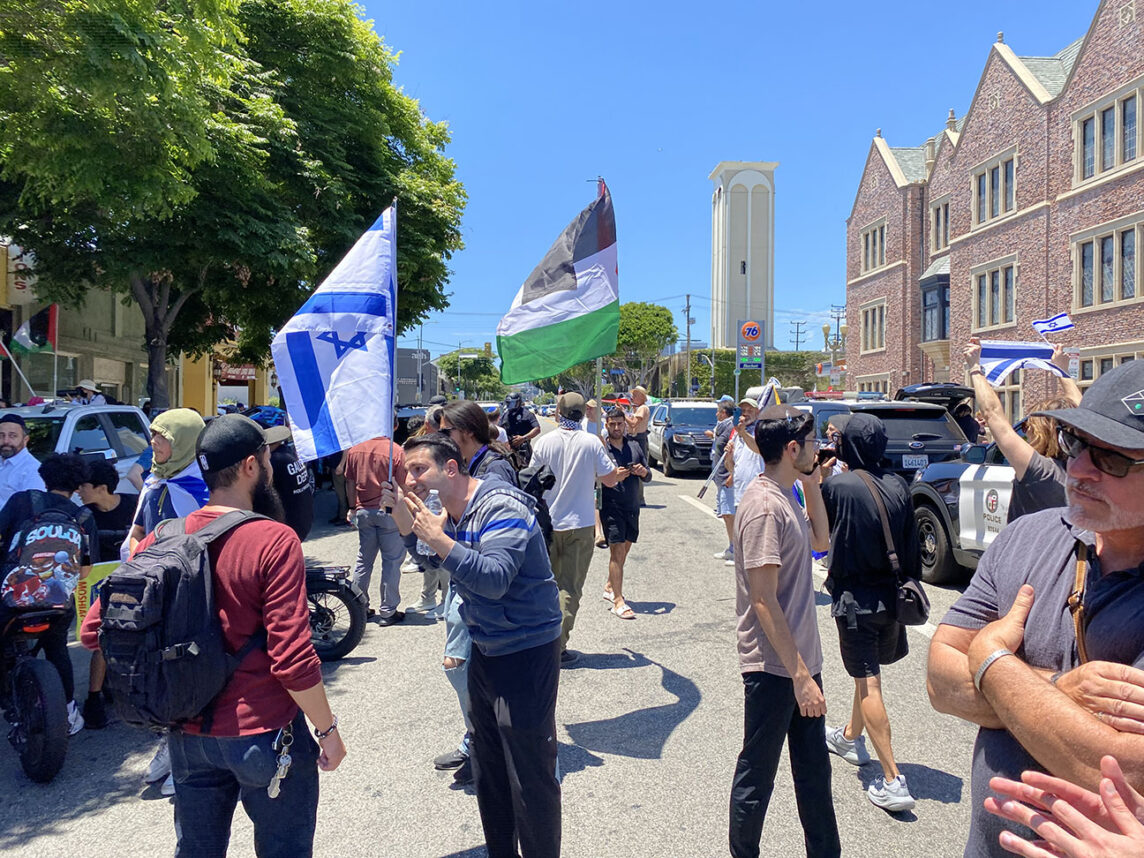
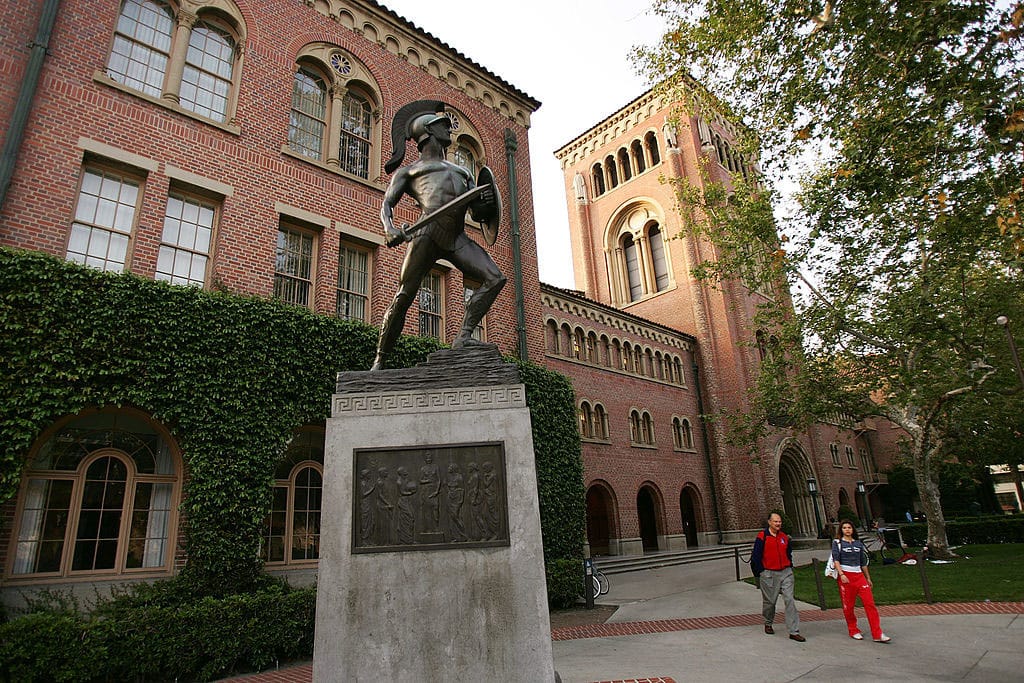
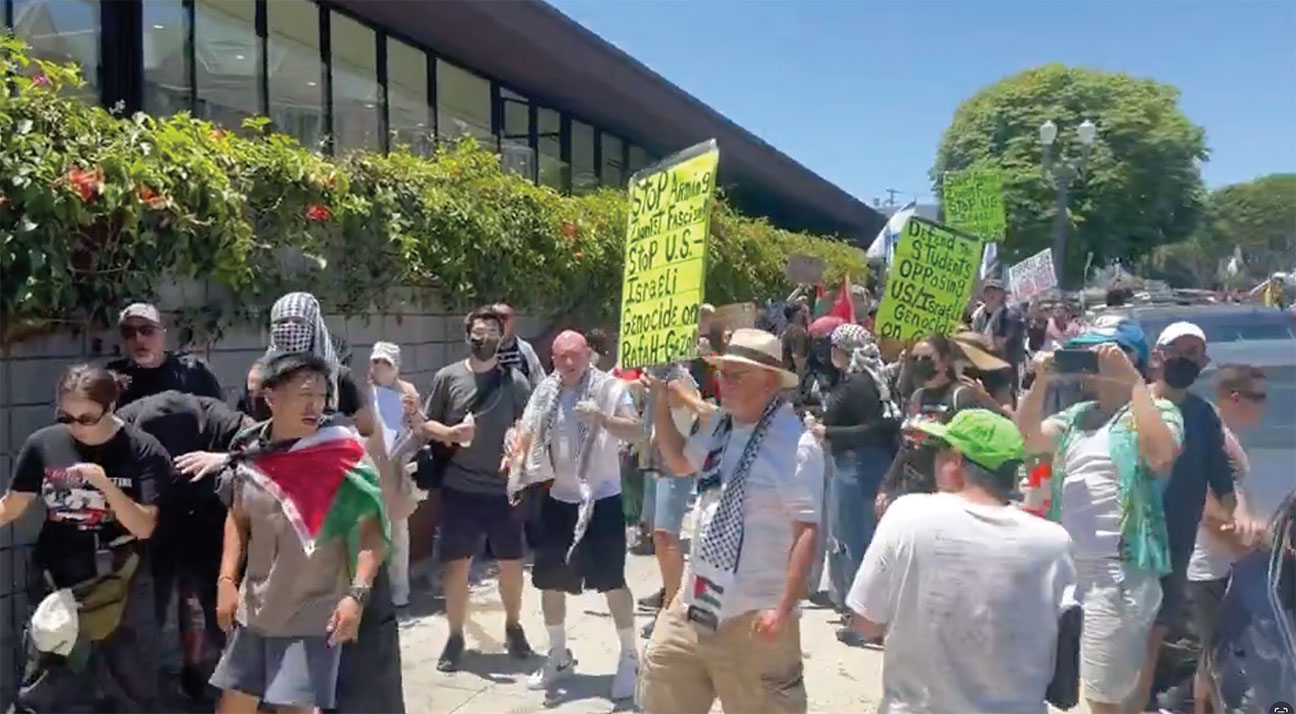
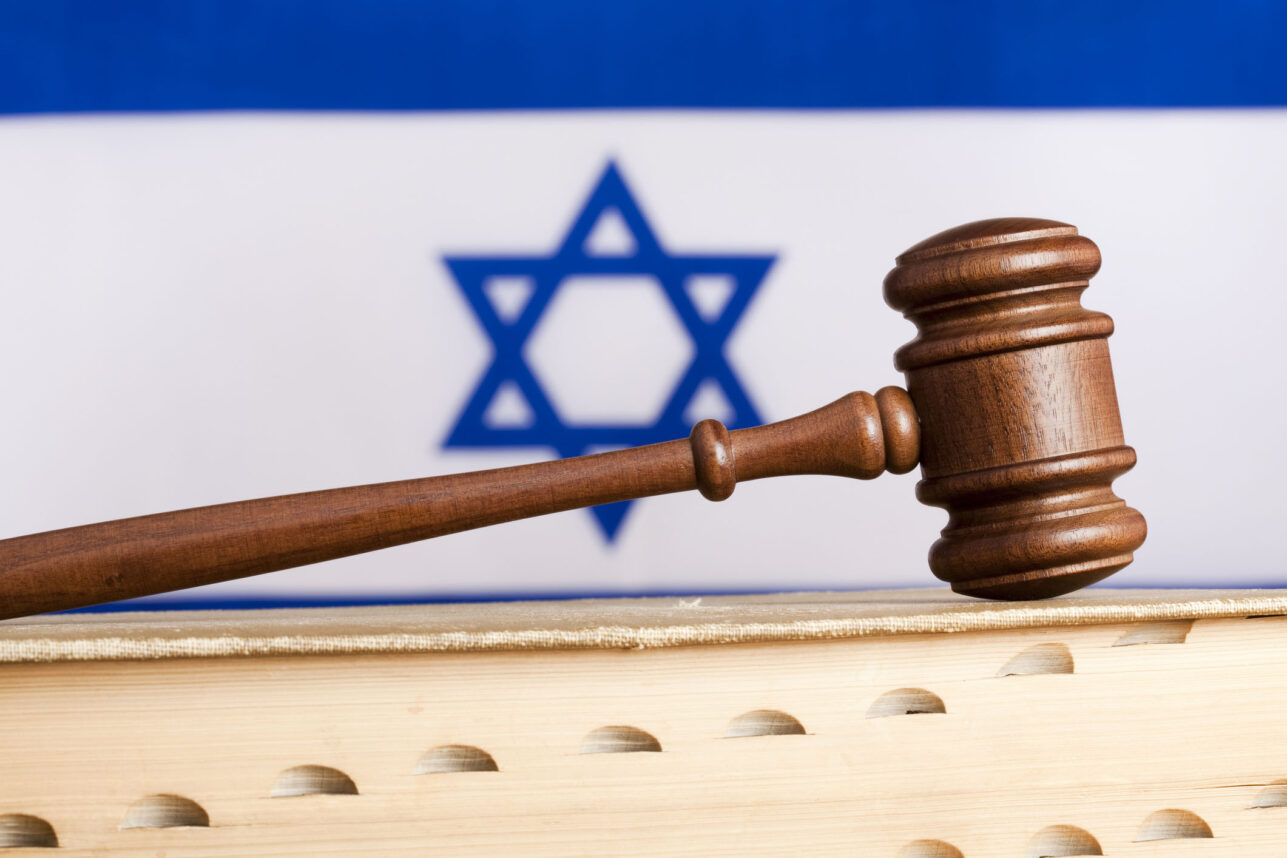


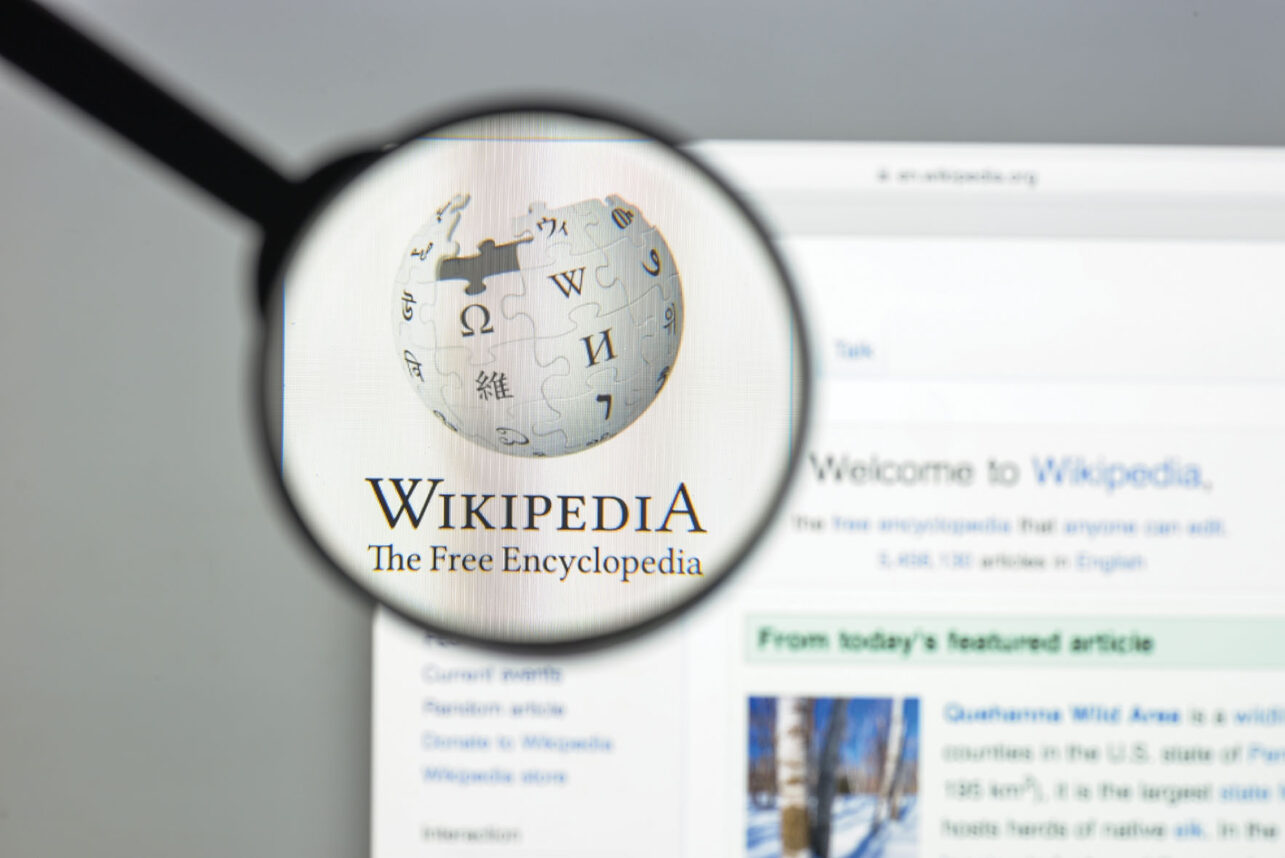
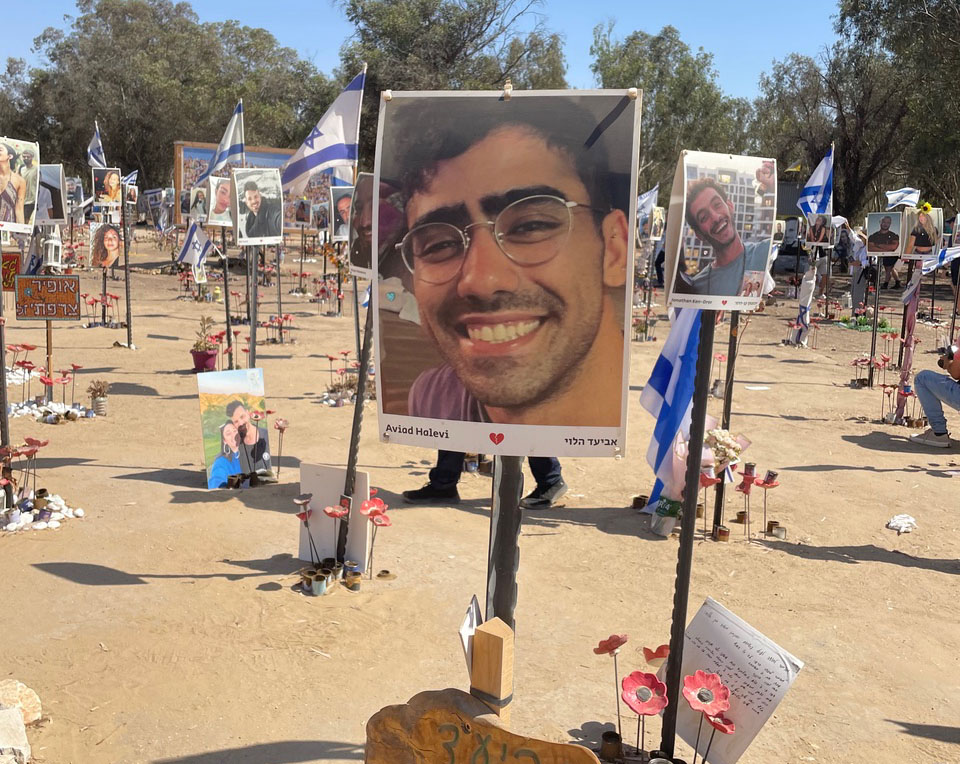



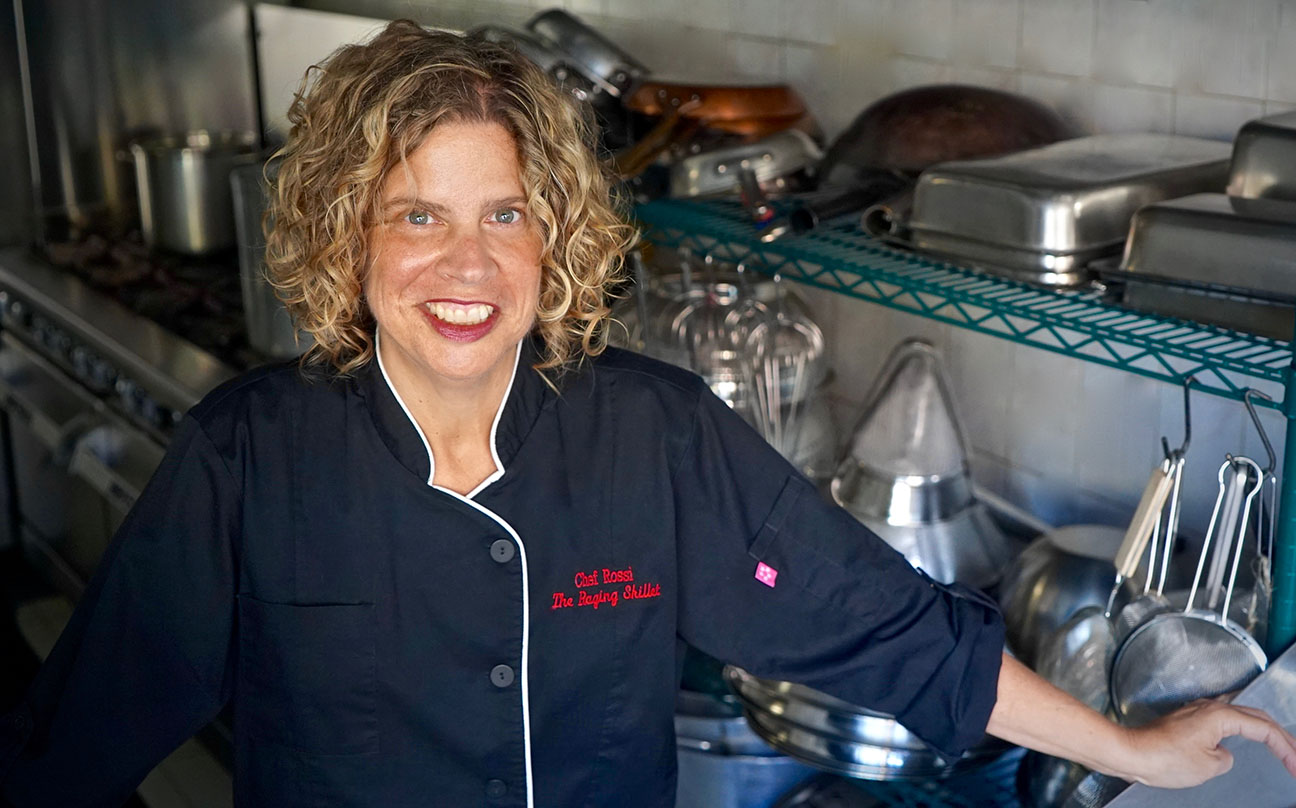
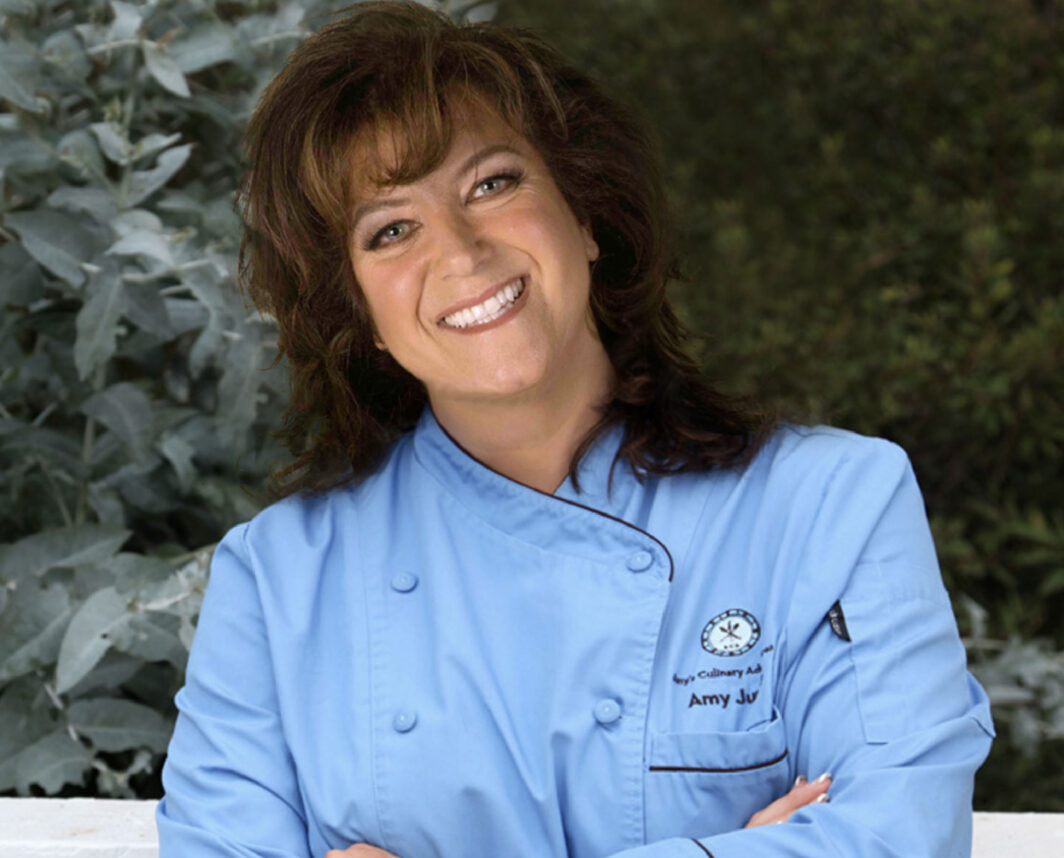
 More news and opinions than at a Shabbat dinner, right in your inbox.
More news and opinions than at a Shabbat dinner, right in your inbox.